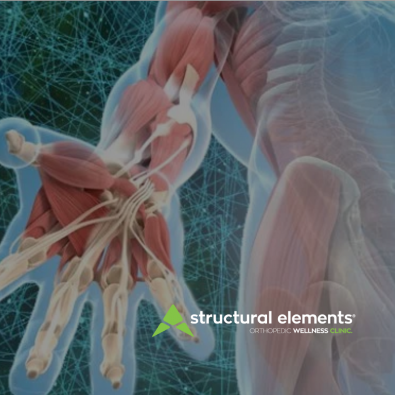Unlocking the Mysteries of Chinese Medicine: Unveiling the Power of Chi and its Connection to Fascia
Chinese medicine has long fascinated the world with its holistic approach to health and well-being. At the heart of this ancient healing system lies the concept of "chi," a vital force that flows within our bodies. While it may seem abstract to those brought up within Western medical frameworks, understanding the relationship between chi and the physical body, particularly through the lens of fascia, can shed light on the effectiveness of Chinese medicine. This blog post will explore the fascinating connection between meridians, chi, and fascia, bridging the gap between ancient wisdom and modern anatomy.
The Essence of Chi: In Chinese medicine, chi is considered the life force that animates our bodies, maintaining balance and vitality. Though not directly observable, it can be understood as the interconnected network of energy pathways that flow throughout our bodies, known as meridians. These meridians form the foundation of Chinese medicine, playing a crucial role in maintaining physical, mental, and emotional harmony.
Unlocking the Meridian System: While ancient Chinese medicine mapped out the meridian system thousands of years ago, modern research has begun to draw intriguing parallels between the meridians and the fascial network within the Western anatomy. Fascia, a three-dimensional connective tissue, envelopes and connects every organ, muscle, nerve, and vessel in the body, creating a complex interwoven web. This intricate fascial network mirrors the pathways of the meridians, suggesting a profound correlation between the two.
The Fascinating Fascia-Meridian Connection: When we consider the meridians in the context of fascia, we find an intriguing explanation for the flow of chi. Just as blood vessels carry oxygen and nutrients throughout the body, the fascial network can serve as a conduit for the flow of energy. Picture the meridians as streams of energy flowing along the pathways laid out by the fascia. When energy encounters imbalances, blockages, or disruptions along these pathways, it can manifest as physical or emotional ailments.
Scientific Perspectives on Fascia and Chi: Modern research on fascia has revealed its role in transmitting electrical signals and facilitating communication between cells and tissues. This aligns with the concept of chi, as energy flow can be interpreted as the transmission of electrical impulses along the meridians. Furthermore, the fascia's ability to contract and relax, responding to movement and tension, corresponds to the dynamic nature of chi within the meridians.
Enhancing Health and Well-being: Understanding the connection between meridians and fascia opens doors to exploring therapeutic approaches that can positively influence the flow of chi. Practices such as acupuncture, acupressure, and qigong aim to restore balance to the meridian system, promoting the smooth flow of energy throughout the body. By using these techniques, practitioners can target specific points along the meridians, stimulating the fascial network and restoring balance to the body's energy flow.
The concept of chi in Chinese medicine offers a profound perspective on the interconnectedness of our physical, mental, and emotional well-being. By bridging the understanding of meridians with the fascial network within Western anatomy, we gain valuable insight into the mechanics of chi and its role in maintaining health. Embracing the wisdom of Chinese medicine alongside scientific discoveries allows us to broaden our approach to healing and well-being, unlocking the potential for a more integrative and holistic understanding of the body and its energy systems.
